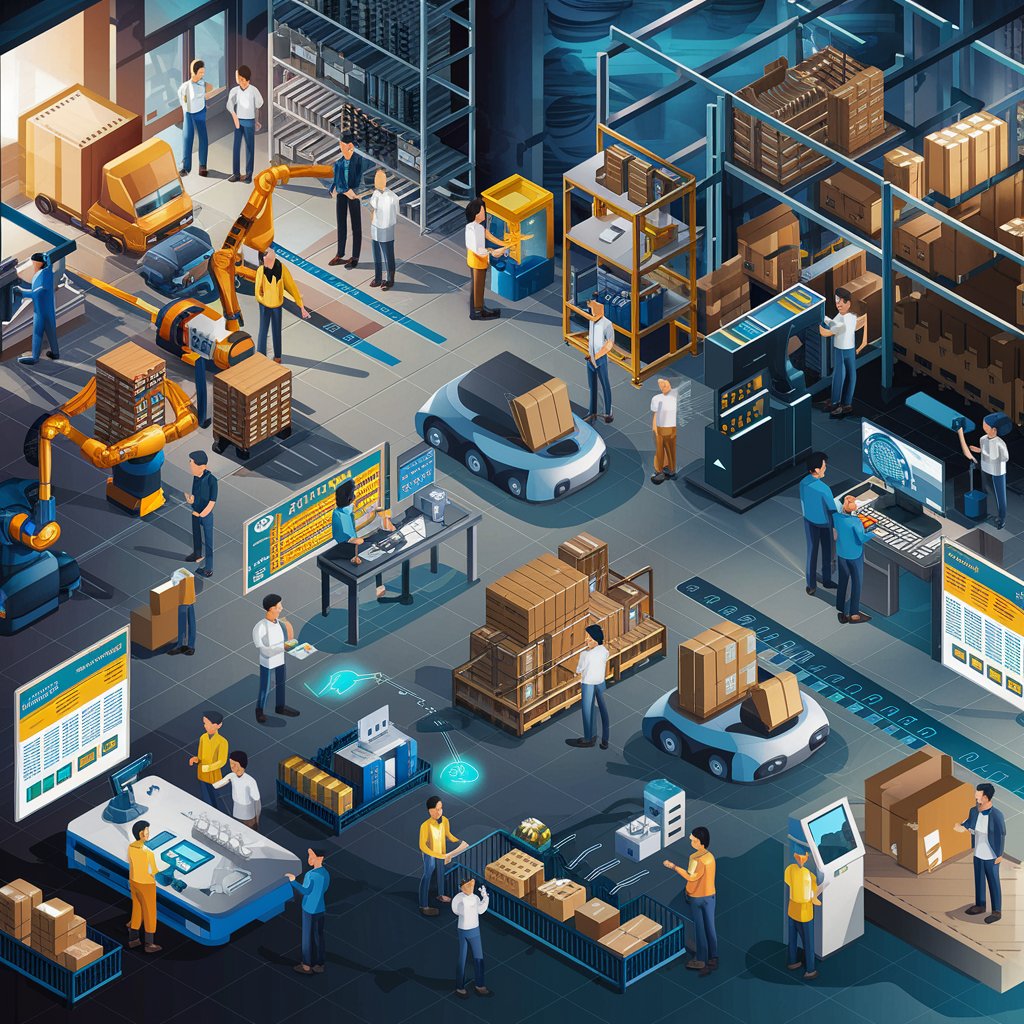In the fast-paced world of global commerce, AI for Smarter Supply Chains plays a pivotal role in ensuring that goods move efficiently from manufacturers to consumers. Traditional supply chain systems, however, often face challenges such as inefficiencies, inaccuracies, and lack of real-time visibility. Enter artificial intelligence (AI)—a game-changer that is revolutionizing supply chain management by enhancing efficiency, accuracy, and responsiveness. In this article, we will explore how AI is transforming supply chain management and how businesses can leverage these advancements for smarter operations.
The Role of AI in Supply Chain Management
In today’s interconnected global marketplace, the efficiency and accuracy of supply chain management can make or break a business. Traditional methods often struggle with challenges like forecasting inaccuracies, inefficient inventory management, and unpredictable logistics. However, the integration of AI for smarter supply chains is reshaping these dynamics, offering unprecedented opportunities for improvement.
Demand Forecasting with AI
AI brings a transformative capability to supply chain operations by leveraging advanced algorithms and machine learning. One of the most significant contributions of AI is in demand forecasting. By analyzing vast datasets, including historical sales, market trends, and external factors like economic indicators and weather patterns, AI algorithms can generate precise demand forecasts. This capability allows businesses to optimize inventory levels, minimize stockouts, and ensure products are available when and where they are needed, ultimately enhancing customer satisfaction.
Enhancing Inventory Management
Another critical area where AI excels is in inventory management. AI-powered systems continuously monitor inventory levels in real-time and can predict demand fluctuations. This proactive approach enables automatic replenishment and helps businesses avoid overstocking or running out of critical items. AI also contributes to identifying slow-moving or obsolete inventory, allowing for strategic decisions that optimize warehouse space and reduce carrying costs.
Optimizing Logistics and Transportation
In logistics and transportation, AI optimizes route planning and scheduling. Machine learning algorithms analyze variables such as traffic patterns, weather conditions, and delivery deadlines to determine the most efficient routes. This not only reduces transportation costs but also enhances delivery speed and reliability. Furthermore, AI can predict potential disruptions in the supply chain, such as traffic incidents or natural disasters, allowing for proactive adjustments to minimize delays and maintain operational efficiency.
Improving Supplier Management
Supplier management also benefits significantly from AI for smarter supply chains. AI tools evaluate supplier performance based on criteria such as delivery times, quality, and pricing consistency. By identifying reliable suppliers and optimizing procurement processes, businesses can strengthen partnerships and mitigate risks associated with supply chain disruptions.
Streamlining Warehouse Operations
Within warehouses, AI-driven automation streamlines operations through technologies like robotic process automation (RPA) and automated guided vehicles (AGVs). These technologies handle tasks such as picking, packing, and sorting with speed and precision, reducing labor costs and minimizing errors. AI also optimizes warehouse layout and inventory placement, maximizing storage space utilization and improving overall operational efficiency.
Real-World Applications of AI in Supply Chains
Real-world examples illustrate the transformative impact of AI in supply chain management. Companies like Amazon and Walmart use AI for demand forecasting and inventory optimization, ensuring they meet customer demands efficiently. Logistics giants like UPS leverage AI to optimize delivery routes and enhance service reliability. These applications demonstrate how AI not only enhances operational efficiency but also drives competitive advantage in the marketplace.
The Future of AI in Supply Chain Management
Looking ahead, the future of supply chain management lies in further advancements in AI technologies. As AI algorithms continue to evolve, businesses can expect even greater efficiencies, accuracy, and responsiveness across their supply chain operations. Embracing AI is not merely a strategic choice but a necessary step for businesses aiming to thrive in a fast-paced and increasingly complex global economy.
Conclusion
AI is revolutionizing supply chain management by enabling smarter, more efficient, and responsive operations. From demand forecasting and inventory management to logistics optimization and supplier relations, AI-powered solutions are reshaping the way businesses manage their supply chains. As these technologies continue to evolve, organizations that adopt and integrate AI into their operations will gain a significant competitive advantage in delivering value to customers and stakeholders alike.
For more insights and updates on AI and AI tools, stay tuned to AIPromptopus.

